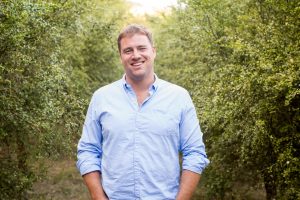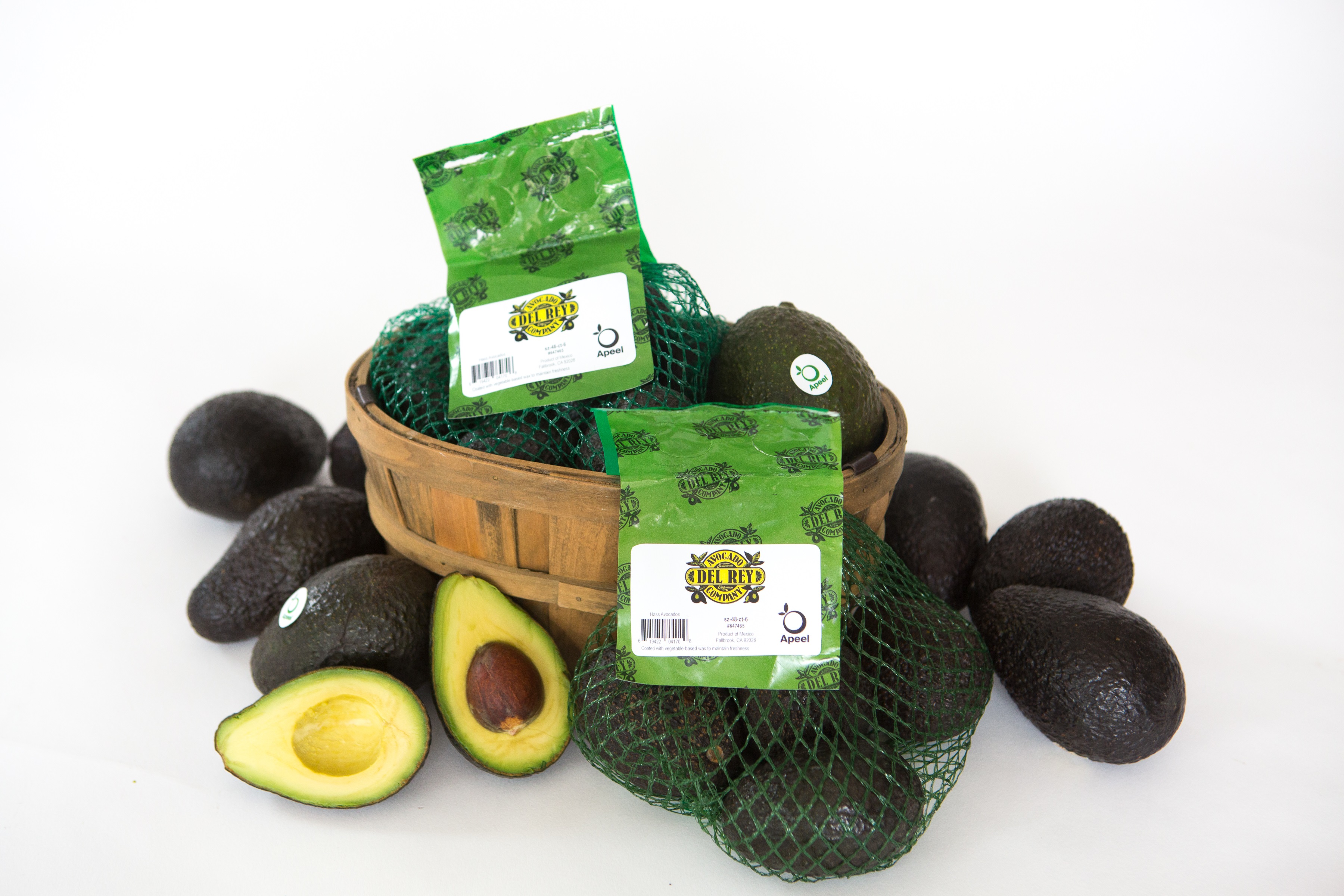The world’s food problem is not a lack of produce, says Apeel Sciences founder James Rogers—it’s that we can’t keep it viable after harvest, to store and transport it to where it needs to be consumed. One-third to one-half of food ends up in landfills or rots in fields, while people go hungry. Fresh food sales are rising, but significant profit is lost from waste—U.S. retailers lose $18 billion a year on produce thrown out; globally, it comes to $1.2 trillion, according to a report by Fast Company.

James Rogers, CEO of Apeel
The idea for Apeel Sciences came to Rogers while he was listening to a podcast on food waste in 2012. At the time, he was pursuing his PhD in Materials Science at the University of California, Santa Barbara. Having worked to develop thin polymer coatings for solar panels, Rogers imagined a thin covering that might preserve food—if it could prevent water loss and oxidation. Consulting his biochemistry textbook, he unearthed the molecules needed to create an edible food barrier, and Apeel Sciences was launched in 2012. Six years later, with over $110 million in funding jumpstarted by an initial $100,000 grant from the Bill and Melinda Gates Foundation, Apeel is realizing the vision—a natural, sustainable, and scalable solution to food scarcity. It’s a triple win: consumers get longer-lasting, naturally ripened fruits and vegetables; growers reduce shipping costs and expand markets; and retailers are spared losses.
The invisible, tasteless, and odorless edible peel is currently found on avocados sold at Costco, Kroger, and Harps locations in the Midwest. Kroger introduced Apeel avocados in 109 Cincinnati stores last fall. Eco Farms and Del Rey are Apeel Science’s first large-scale commercial partners. Apeel has demonstrated that its technology can double or even triple shelf life across dozens of produce categories; Apeel asparagus and citrus will be available at grocery stores in early 2019. The coating has been approved for conventional and organic products, and is Generally Recognized As Safe by the U.S. Food & Drug Administration.
“Using food to preserve food”
The Apeel technology has turned heads: it made Time’s 50 Genius Companies of 2018 list, and The Wall Street Journal’s Six Technologies That Could Shake the Food World roster. One reason is sustainability—it uses the plant kingdom’s own building blocks and mechanisms to preserve fresh produce.
The process creates a semi-permeable barrier controlling the rate of water evaporation and oxygen intake, creating an “idealized microclimate” inside the produce. Simply, it keeps moisture in and oxygen out. Lipids and glycerolipids from agricultural by-products are extracted, mixed with water and dried; they self-assemble into an edible skin.
Doubling the shelf life of avocados is no small feat for a food whose ripeness and spoiling window is frustratingly small. “(Apeel’s solution) means that high quality avocados can reach regions of the U.S. that were typically limited by quality issues, such as the Midwest,” Rogers said. When applied to citrus, the coating reduces water loss in citrus by 67 percent, and shrinkage up to 70 percent.
Produce can be picked later, enhancing nutrition, quality, and taste, while reducing waste—it stays fresher 2-3 times longer. “In some cases we actually expect to see lower prices set for produce with Apeel,” Rogers says. “Some retailers [will hopefully] use the cost savings from throwing away less produce to offer Apeel produce at a lower price.”
Each formulation is tailored to a specific crop type.
Benefits for small farmers and retailers across the globe
Extension of shelf life for fresh foods has enormous implications for international trade, with particular benefit to small growers. The Kenyan farmers who work with Apeel lost one-third of their mango crops before utilizing the technology, due to a lack of refrigeration and transportation infrastructure. Now Kenyan farmers can sell to the EU and Asia at ten times the price they receive locally, Rogers said (Civil Eats). Mangoes can be stored at room temperature for 25 days. Thanks to Apeel, cassava root from Africa can now be shipped to the U.S. and EU.
By reducing the carbon footprint of imported vegetables and fruits in the West, those international growers accrue more profits. Apeel tracks conditions as fruit travels from afar to U.S. groceries, then mirrors that in its Goleta, California facility to develop solutions for global produce travel.
Asparagus often has the highest carbon footprint in the produce section due to the way it’s transported: ninety-five percent of Peru’s harvest enters the U.S. and EU by air. Apeel could enable a switch to sea transport, reducing carbon emissions while helping retailers diversify their sourcing to a more global market.
In the organic markets, growers and packers have a more constrained set of tools available for postharvest protection, reducing their ability to compete globally. By maintaining quality of produce longer, new opportunities for organic growers are opening up.
Rogers believes his team can eventually quadruple shelf life, eliminating the need for refrigeration completely for some types of fruits and vegetables.
Challenge, and a lofty vision
Rogers expects Apeel produce to be available nationally by 2019. “Our biggest challenge is scaling the team so we can service the demand from growers, suppliers, and retailers globally,” he said.
Apeel’s mission-minded team is committed to working with the natural world—never against it. The potential for this innovative food enhancement product—for reducing global emissions, reducing hunger, and enriching nutrition—exemplifies science at its best. An appealing notion, all the way around.









